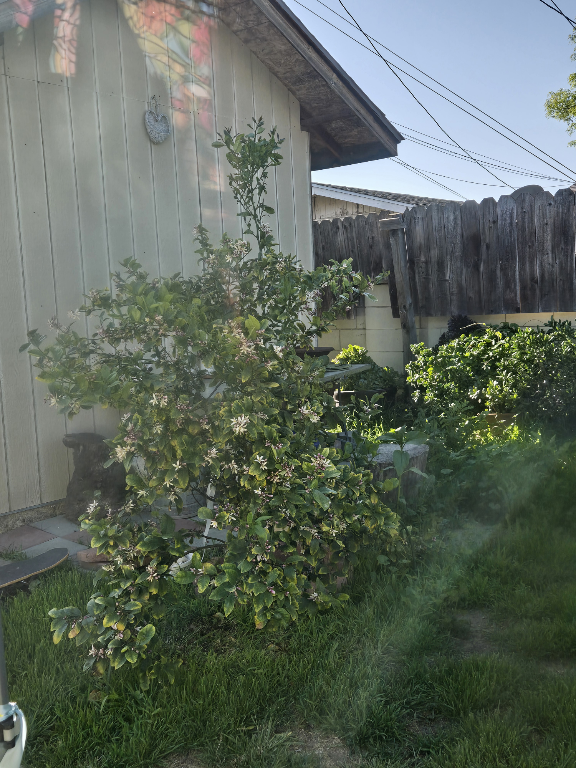How to grow and care for Citrus medica L.
plant care guide about watering, fertilizing, trimming, repotting, cutting, propagating Citrus medica L., Meyer lemon
Citrus medica L. 101 - Plant Care Instructions
Bright direct light
18C° ~30C°
Every 10 days
Growth Observation wiki
Botany Encyclopedia
Genus : Citrus
🔖 Care Tips
If the tree is too young, it won't bear fruit. It usually takes about 3 to 5 years to see fruit. Without artificial pollination, fruit may not develop. It's best to pollinate as soon as the flowers start blooming, as the success rate decreases over time. Gently rub the flowers with a cotton swab or brush for pollination, being careful not to damage them. Small fruits ripen in a few months, but larger ones may take 12 to 18 months.
🏝️ Habitat Conditions
This plant grows in the warm tropical regions of Southeast Asia and Australia. It thrives in warm and humid environments.
🪨 Soil Mix
When planting, it's best to use well-draining soil. Generally, mix 40% potting soil, 20% bark, 20% leaf mold, 10% perlite, and 10% charcoal. However, you can adjust the ratios based on the situation and environment.
🌡️ Environment
The ideal temperature is 15-25°C, and it should not drop below 5-10°C. Maintain humidity at 50-70% as plants prefer a humid environment. If it's dry, increase humidity with a humidifier or spray bottle. Ensure good air circulation when humidity is high to prevent mold growth.
☀️ Light
This plant needs a lot of light. It thrives best with 10-12 hours of light per day. From spring to summer, place it outside to ensure it receives ample sunlight.
💧 Water
When the surface soil is dry, water the plant thoroughly.
🪴 Repot
It is advisable to repot every 2-3 years. If placing outdoors during spring to summer, use a pot with wheels.
💊 Fertilize
During the growing season from spring to summer, it is advisable to use fertilizer according to the recommended amount. After fruiting, additional fertilization is beneficial. Avoid fertilizing immediately after repotting; wait 2-4 weeks before applying fertilizer.
🌺 Flower
Some species may bloom several times a year, but they usually flower once in the spring. Be cautious, as insufficient light can prevent blooming. If too many flowers bloom, thinning them out can prevent excessive fruiting. Too many fruits are not good for the plant and can result in poor-quality fruits.
😵 Toxicity
Be cautious with pets and young children as it is toxic.
water
How to water Citrus medica L.
How often should I water?
check Citrus medica L. Every 10 days if it needs water when it’s very cold (below 5℃), water less frequently
When do I need to water?
the top 2-3 inches of soil is dry
When is the Dormant period?
it goes into dormancy in the Winter. during the period, 1.5~2x the watering interval you use in the warm season.
Light & Location
How much light does a Citrus medica L. need?

Bright direct light
Bright indirect light
Grow light
Light preference
Citrus medica L. likes Bright direct light, Bright indirect light, Grow light day. The brighter the space, the better this plant grows.
Check if there’s an optimal place in your house!
This plant prefers
2K ~ 20K lux to thrive!
0
20K~
2K
20K
Temperature
Natural habitat
-15
3~40℃
45
Houseplants
-15
18~30℃
45
Plants that grow in the wild and those that grow indoors prefer different temperatures. If you grow Citrus medica L. at home, make sure the temperature is 18~30℃.
Humidity
Ideal humidity
0
40~70%
100
Citrus medica L. prefers humidity about 40~70%. If necessary, increase humidity by misting, humidifier.
Fertilize
Collective Knowhow
When should I fertilize?
Only when your plant is healthy
How frequently should I fertilize?
1-2 times in growing season. A pinch for a small pot.
Characteristic
The taxonomic classification of Citrus medica L. is as follows. - Kingdom: Plantae, Phylum: Tracheophyta, Class: Magnoliopsida, Order: Sapindales, Family: Rutaceae, Genus: Citrus, Species: Citrus medica
| Characteristic Name | Characteristic Value |
|---|---|
| Lifespan | Perennial |
| Habitat | Asia |
| Taxonomy Name | Taxonomy Value |
|---|---|
| Phylum | Tracheophyta |
| Class | Magnoliopsida |
| Order | Sapindales |
| Family | Rutaceae |
| Genus | Citrus |
| Species | Citrus medica |
Is Citrus medica L. toxic?
Citrus medica L. is dangerous to Cat, Hamster, Dog
Cat
Hamster
Dog
Is your plant sick?
Track what happened. We’ll let you know the cause and treatment shortly!





1:1 Expert Help
You’ll get professional feedback within 24 hours from an expert on our team.
feedback will include










